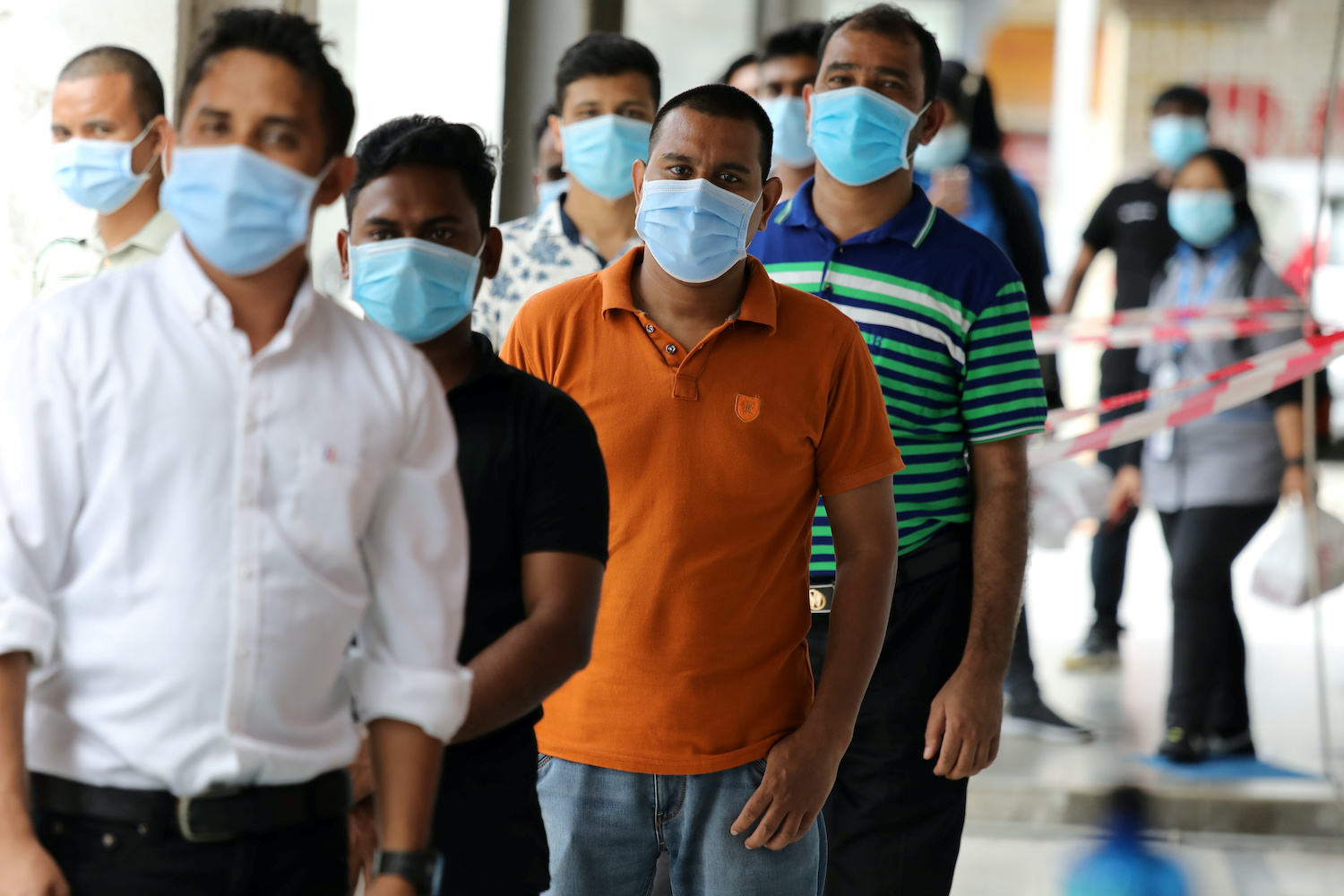(ATF) The Malaysian government has ordered employers to provide Covid-safe living spaces for its migrant workers after several explosions of the virus at crowded hostels where thousands of migrant factory workers live. But a labour expert said corruption is still rampant and undermining the changes that need to be made – so it is unrealistic to expect a fast solution.
Covid-19 infections in Malaysia have raged among its migrant workers who typically work and live closely together – an outbreak at world’s largest glove maker, Top Glove Corp, saw over 5,000 workers infected in December.
Malaysian companies typically employ migrant workers primarily from Nepal, Bangladesh and Indonesia, who work largely in the manufacturing and agriculture sectors.
Kuala Lumpur has now told factory bosses that they need to provide lodging with sufficient living space and amenities for migrant workers to help control the spread of the virus, the Human Resources Ministry said on Thursday.
This news was among the first emergency ordinances – laws that do not require prior parliamentary approval – to be enforced since a national emergency was declared on January 12 to curb the virus spread.
Minister M. Saravanan said, under the emergency ordinance, the minimum housing standards for worker accommodation will now be enforced nationwide and the Labour Department authorised to order accommodation owners to replace, change or improve workers’ lodgings.
FINES OR JAIL
The department can also order them to move workers immediately from accommodation that is deemed crowded and unsuitable for human lodging, at their own cost, or face $49,500 fines or a three-year jail term, or both.
The ministry, in recent investigations at glove makers Top Glove and Brightway Holdings’ facilities, found workers living in cramped, poorly ventilated and dirty hostel accommodation.
The Southeast Asian nation reported on Thursday that cumulative Covid-19 cases had reached nearly 275,000 and total fatalities 1,030.
Andy Hall, an independent labour rights specialist who has been working on migrant worker issues in Malaysia, said the country had learnt a lesson – and been forced to deal with the issue of cramped and inadequate worker accommodation because of the risk that posed to local people.
“The big problem with the accommodation issue in Malaysia is that there are not the facilities available to accommodate the number of workers who are located in industrial zones where a lot of the factories are,” Hall told Asia Times Financial. “That means if you are going to do this properly and comply with the law – 446 – you need to do like what Top Glove is doing and shift workers to 30 to 40km away from the factory. But, the companies that are doing this, they’re not reducing the hours of work for the workers.”
Workers had to leave their accommodation at 5am in the morning and did not get home till 10pm at night, or those on the night-shift had to leave at 5pm in the evening but don’t get home till 10am in the morning. So, the long travel to work was having a big impact on their work, and reduced their rest and relaxation time, he said.
“It’s really drastic what you need to do. It’s kind of on the edge of impossibility in the short term, that employers would be able to move from the terrible situation which continues with the systemic overcrowding and the poor welfare and safety conditions in the accommodation, to a situation that complies with the law 446.
“It’s unrealistic to expect them to be able to apply it in such a short time.”
There had been a lot of investigation into the glove sector, but he said “because the glove sector has more money at the moment, they should be able to do it quicker.”
Some of the hostels that Top Glove had renovated in Klang and Meru “looked a lot better” than places where the workers stayed in previously, where it was difficult to get social distancing because workers were tired, came home late, had to queue for lifts and to get food “as they aren’t allowed to cook for themselves”.
“But the other issue with this is, the whole accommodation certification process is rife with corruption – both at the local council level and also the government level. So the reason why this [issue] went on for so long is because of the corruption. And even with the new certification schemes, we’re getting a lot of information from employers that there’s a lot of corruption, which is really undermining the ability of employers to do this.
“And if we look at the social distancing situation, both in the workplace and worker accommodation, we still see major issues.”
With reporting by Liz Lee for Reuters
Note: This article was updated with comments from Mr Hall on February 19.
























